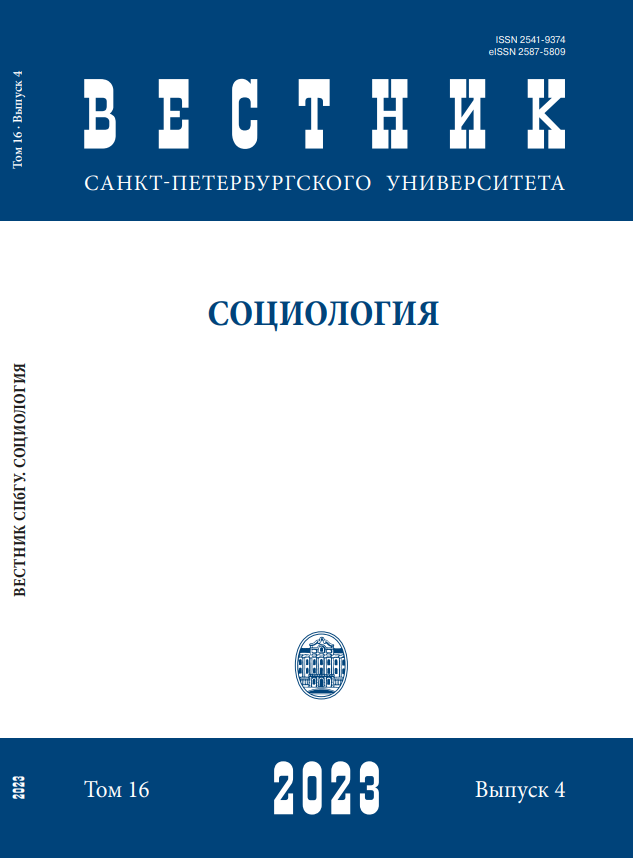The link between subjective well-being and electoral participation: Cross-national perspective
DOI:
https://doi.org/10.21638/spbu12.2023.405Abstract
The article examines the relationship between subjective well-being and elections turnout. The purpose of the article is to determine how subjective well-being affects turnout. To achieve the purpose, the link between subjective well-being and electoral participation should be studied along with the influence that political regime has on this link. The majority of previous
research papers indicate that there is a positive relationship between the studied variables. Most of these studies were based on data from specific democratic countries. Little attention has been paid to cross-national comparison and to countries with less developed democratic institutions. According to the theory of retrospective voting, voters tend to use elections to
reward or punish the incumbent. Thus, it can be hypothesized that subjective well-being increases the likelihood to participate in elections, and that the democratic context strengthens the link between subjective well-being and voters turnout. The joined dataset of the European Social Survey and World Values Survey is used for the empirical analysis. Multilevel binary logistic regression is used as the main method of analysis. The results of the study show a statistically significant relationship between the high level of subjective well-being and voter turnout. People with higher levels of subjective well-being are more likely to vote in elections. In democratic countries, this relationship is stronger. These findings support the conclusions of previous research and confirm a modified version of the retrospective voting theory, which uses subjective well-being as a predictor of electoral behavior.
Keywords:
subjective, well-being, happiness, political participation, voting, elections, voter turnout
Downloads
References
Downloads
Published
How to Cite
Issue
Section
License
Articles of "Vestnik of Saint Petersburg University. Sociology" are open access distributed under the terms of the License Agreement with Saint Petersburg State University, which permits to the authors unrestricted distribution and self-archiving free of charge.




